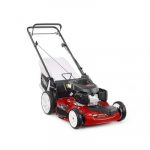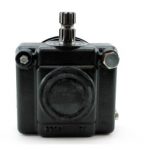The growth of ethanol fuel blends continues across the nation, and equipment owners are finding out that it may be more detrimental to their equipment than thought. They are finding that ethanol fuel is not just detrimental to lawn mowers, but also can cause issues with other gas-powered machines over the long term. In fact, due to the amount of time many pieces of hand-held, gasoline-powered equipment sits around between uses, it can be effected even worse than lawn mowers.
Equipment to Keep an Eye On
Chainsaws – Chainsaws can sit for months between uses, particularly when there are no storms. This makes them particularly vulnerable to ethanol, since they are not part of consistent maintenance.
Lawn Trimmers and Edgers – These pieces of equipment will get used on a fairly regular basis over the summer, so there won’t be as many worries about them at that point. Over the winter, though, caution will be needed.
Hedge Trimmers – These may get a fair amount of use, so they may not need as much attention. Additionally, smaller tanks make it more likely the user will run through all the fuel during use.
Leaf Blowers – Since they are generally only used during summer and fall, they’ll need special attention to survive the winter and spring, where they may sit idle.
Generators – The last thing you want in a power outage is a generator that won’t work because ethanol fuel has gummed up the engine. Given that they can go months or even years between uses, these need special attention.
Snow Blowers – The single-season usefulness of these pieces of equipment makes them rime candidates for fuel system problems.
Ways to Lessen the Impact of Ethanol
There are a few things you can do before and during usage that will make ethanol gas less likely to cause issues with your lawn equipment.
- Use the Right Gas Canister: Older gas containers with permanent vents allow fumes to escape, bit also allows moisture in, which reacts with the ethanol.
- Buy New Fuel Monthly: By buying only enough fuel to last a month, you can ensure that it doesn’t go stale or separate.
- Shake the Fuel Container: One of the issues with ethanol is that it absorbs moisture into the fuel, and after time, phase separation occurs – that is, the water separates and sits on the top. This can lead to large amounts of water being pumped into the fuel system all at once. Make sure to shake your gas can for at least 30 seconds before fueling.
- Store Fuel in a Cool, Dry Place: The less moisture in the air, the less moisture the ethanol can absorb, simply put.
- Drain Fuel from Idle Equipment: Avoid letting fuel sit in a fuel system for longer than 30 days if possible.
- Use Fuel Stabilizer: If you are going to try and leave fuel in a piece of equipment for a long period of time, make sure to use fuel stabilizer from a reputable brand.
- Stock up on Low- and No-Ethanol Fuel: Check out this website for a list of gas stations that carry ethanol-free gas. If none of these places are close enough, make sure that you use nothing higher than E10 fuel.
So don’t let ethanol-laced gasoline effect your lawn mower or other pieces of lawn equipment this year, or in the future. Take precautions, and keep up on new information that comes out over time.





